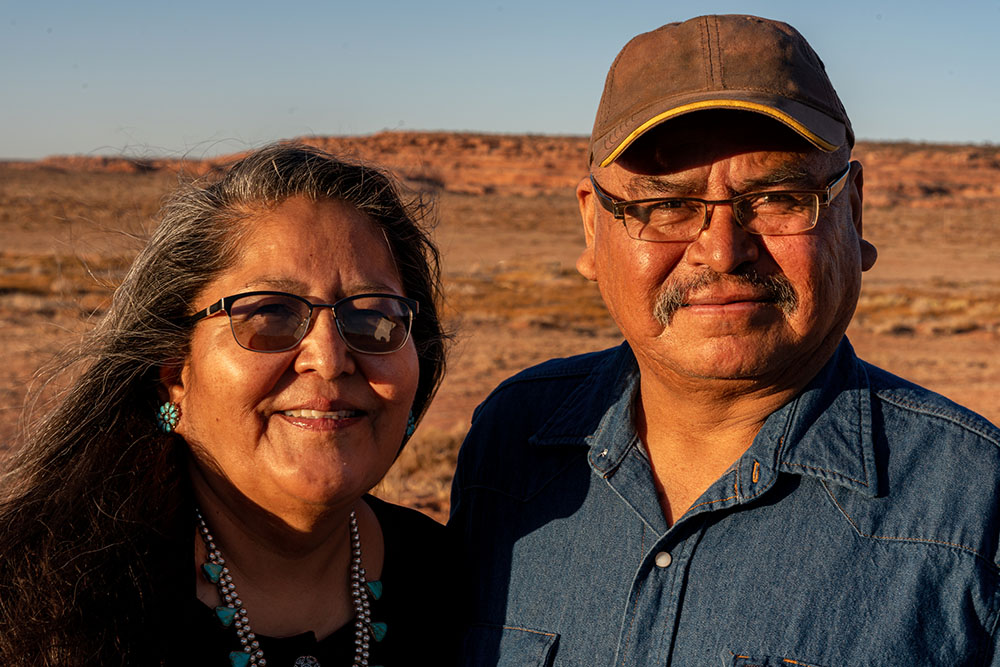
- Details
- By Leidos
Electronic health record (EHR) systems promise enormous improvements in clinical and other healthcare operations and, most importantly, patient outcomes. At the same time, developing, implementing, managing, and taking full advantage of EHRs has proven challenging to even the largest, best-resourced healthcare systems.
In an August webinar with TribalWise, two Leidos executives highly experienced in implementing EHR systems for the U.S. military and commercial sector discussed how lessons learned from implementing thousands of locations in facilities both small and large can be applied in hospitals and clinics serving U.S. tribal communities. Dr. Don Kosiak, chief medical officer for Leidos, and Doug Barton, senior vice president, chief technology officer and chief engineer for the Leidos Health Group, described opportunities to help modernize the EHR capabilities of the Indian Health Service (IHS) and American Indian/Alaska Native community health facilities.
Meeting the unique needs of rural healthcare
There are special challenges in linking up many small, rural clinics, along with hospitals, to an overarching electronic health system. Kosiak noted that dealing with smaller, sometimes very isolated, medical facilities that are often dependent on paper records and other older documentation tools is a familiar experience for him. He noted that under those conditions, care coordination and other efforts needed to keep the population healthy and well can become challenging.
Kosiak explained that he was brought up in a small town in rural North Dakota where his father was the local doctor, and for many years the only doctor. He also has several decades of practice experience in emergency medicine providing care in many IHS and tribal facilities throughout the Midwest and has helped connect clinical locations serving isolated U.S. military forward operating bases.
"I know what it's like when much of the population isn't within 30 minutes of the nearest clinician," Kosiak said. “And having worked with tribal communities over the years, I understand there are unique needs at every practice location. The tools and technologies needed to address these unique opportunities must be flexible enough to meet the local needs of the providers and of the patients and their families.”
But even when care is fragmented and geography and local conditions become barriers to providing quality, timely care, there are well-proven approaches to replacing conventional record-keeping with a modern EHR, said Kosiak. The results more than justify the efforts, he added.
"The EHR system is just the means to an end," he said. "It is a baseline tool that helps to begin care transformation. Once that baseline is established, it allows you to improve access to care, and the quality and safety of care, and layer on the other services to really transform healthcare delivery."
In the case of more rural communities, he noted, the key benefits of a modern EHR can include adding outreach services including mobile clinics, providing virtual care, and setting up "hospital-in-home" services that enlist remotely connected medical devices—all while ensuring that the patient's needs and health histories are right at the clinician's fingertips, even when the clinician is hundreds of miles away.
Developing and deploying effective EHR systems in a geographically dispersed environment
Doug Barton addressed some of the critical success factors to effective EHR system development and deployment in a geographically dispersed environment. He particularly emphasized the need for strong collaboration between IT and clinical staff in every stage of an EHR project, from initial planning through go-live and beyond.
"Making sure everyone communicates is critical," he said. "Every stakeholder in the process, including clinicians, management, IT support staff, and others, all need to establish a common understanding of what's going to be happening throughout."
It's also important, added Barton, to take each local community's needs and expectations into account in the project as well. "Having a team that's familiar with the way medicine is practiced locally, the local culture, and the different ways patients view their interactions with the healthcare system, is extremely important," he said. "That's how you make sure you're doing things in a culturally sensitive and appropriate way."
As an example, he offered the considerations around data sovereignty that can apply to tribal healthcare, noting the importance of finding the right balance between the needed levels of health data sharing and protecting patient privacy and other data rights important to the community.
Kosiak expressed confidence that the IHS and tribal communities would be well-served by the right EHR system effort. "We stand ready to support true care transformation throughout the IHS," he said. "We understand the journey can be difficult, but the benefits can be truly life changing. Once clinicians can start using that data in their workflow, it will open up a range of new capabilities that will make a big difference for individual patients, families and communities."
Help us defend tribal sovereignty.
At Native News Online, our mission is rooted in telling the stories that strengthen sovereignty and uplift Indigenous voices — not just at year’s end, but every single day.
Because of your generosity last year, we were able to keep our reporters on the ground in tribal communities, at national gatherings and in the halls of Congress — covering the issues that matter most to Indian Country: sovereignty, culture, education, health and economic opportunity.
That support sustained us through a tough year in 2025. Now, as we look to the year ahead, we need your help right now to ensure warrior journalism remains strong — reporting that defends tribal sovereignty, amplifies Native truth, and holds power accountable.
 The stakes couldn't be higher. Your support keeps Native voices heard, Native stories told and Native sovereignty defended.
The stakes couldn't be higher. Your support keeps Native voices heard, Native stories told and Native sovereignty defended.
Stand with Warrior Journalism today.
Levi Rickert (Potawatomi), Editor & Publisher

